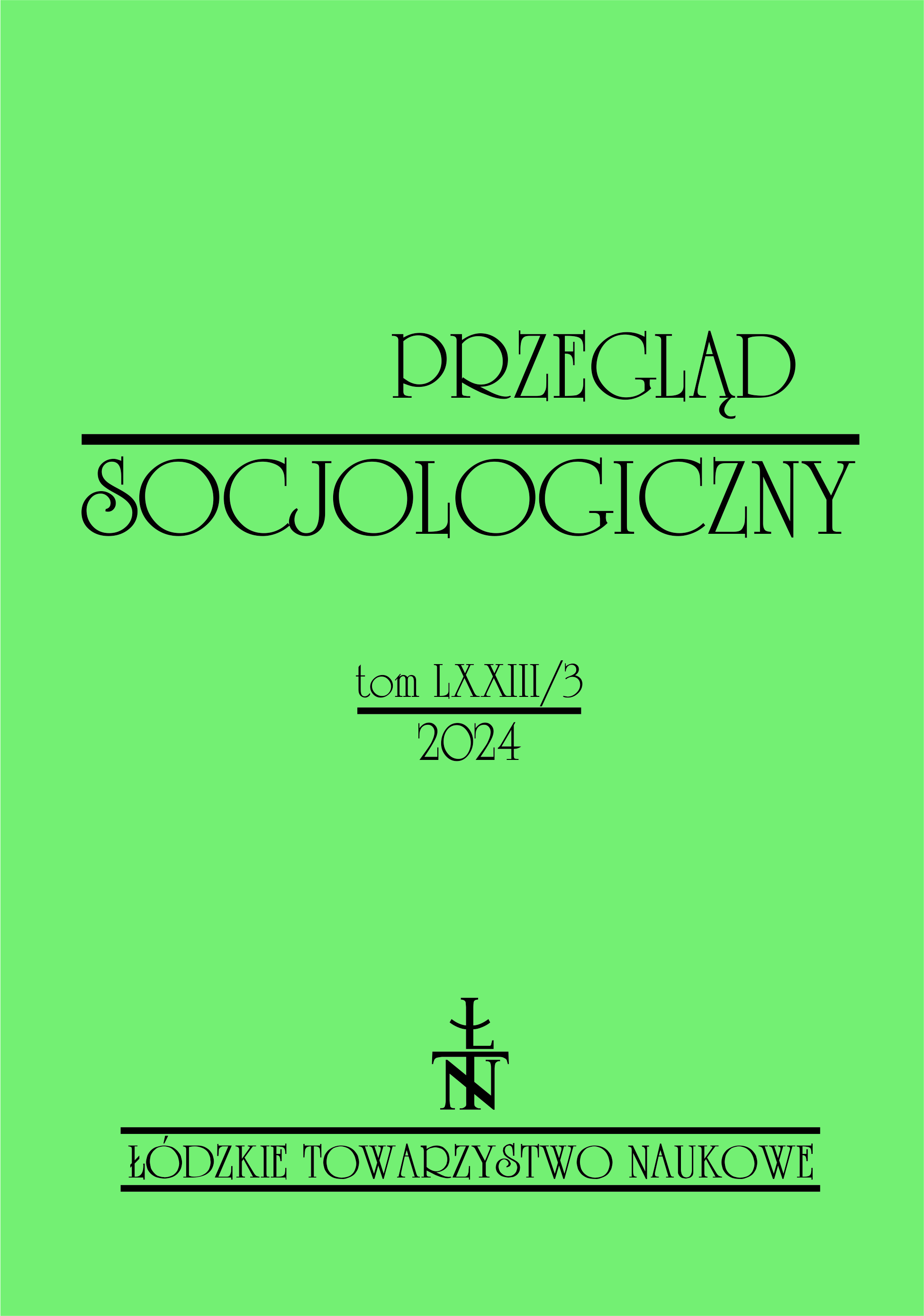Social imagery of the future. Using narrative game “The quiet year” as a research tool
DOI:
https://doi.org/10.26485/PS/2024/73.3/4Keywords:
narrative game, serious game, serious storytelling, future, civilisation threatsAbstract
The article draws attention to the potential possibilities and limitations of the use of narrative games in research on social ideas of the future, mainly civilisational threats, using the example of a pilot study based on the game The quiet year by Avery Alder. First of all, the text introduces the category of serious games and its usefulness for social sciences. The following section presents the results of a pilot study using the game The quiet year. It involves group storytelling of a small community after a civilisational disaster. The study focused on establishing and understanding the relationships that occur: 1) Between players (What types of interactions dominate between them?); 2) Between characters (What kinds of communities are created during the games?); 3) Between worlds (What experiences do players use when creating the game world? How important are popular culture or political messages in creating the game world?). The implementation of the study shows that the use of narrative games has great potential as a tool for researching social imagery of the future, with simultaneous limitations such as the need to control a large number of independent variables and the need to pay special attention to a high ethical level of research due to the potentially sensitive subject matter.
References
Aarseth Espen. 2007. “Playing research: Methodological approaches to game analysis”. Artnodes 7. https://doi.org/10.7238/a.v0i7.763.
Abt Carl. 1970. Serious games. New York: Viking Press.
Alder Avery. 2019. The quiet year. Buried Without Ceremony.
Belton Olivia, Sarah Dillon. 2021. “Futures of autonomous flight: Using a collaborative storytelling game to assess anticipatory assumptions”. Futures 128: 1–13. https://doi.org/10.1016/j.futures.2020.102688.
Buck Holly Jean. 2019. After geoengineering. Climate tragedy, repair, and restoration. London, New York: Verso.
Djaouti Damien, Julian Alvarez, Jean-Pierre Jessel. 2011. Classifying serious games: the G/P/S model. In: Handbook of research on improving learning and motivation through educational games: Multidisciplinary approaches. P. Felicia (ed.), 118–136. Hershey: IGI Global.
Elliott Jane. 2005. Using narrative in social research. Qualitative and quantitative approaches. London, Thousand Oaks, New Dehli: SAGE Publications. https://doi.org/10.4135/9780857020246.
Fine Gary A. 1983. Shared fantasy. Role-playing games as social worlds. Chicago, London: The University of Chicago Press.
Kempa Antonia, Susanne Haake, Paolo Burelli. 2016. Storytelling in serious games. In: Entertainment computing and serious games. R. Dörner, S. Göbel, M. Kickmeier-Rust, M. Masuch, K. Zweig (eds.), 521–539. Dagstuhl: Springer Cham. https://doi.org/10.1007/978-3-319-46152-6.
Liveley Genevieve, Will Slocombe, Emily Spiers. 2021. “Futures literacy through narrative”. Futures 125. https://doi.org/10.1016/j.futures.2020.102663.
Lugmayr Artur, Erkki Sutinen, Jarkko Suhonen, Carolina Islas Sedano, Helmut Hlavacs,
Calkin Suero Montero. 2017. “Serious storytelling – A first definition and review”. Multimedia Tools and Applications 76. https://doi.org/10.1007/s11042-016-3865-5.
Marshall Helen, Kim Wilkins, Lisa Bennett. 2023. “Story thinking for technology foresight”. Futures 146. https://doi.org/10.1016/j.futures.2023.103098.
Mitchell Alex, Kevin McGee. 2009. Designing storytelling games that encourage narrative play. In: Interactive Storytelling. I.A. Iurgel, N. Zagalo, P. Petta (eds.), 98–108. Berlin, Heidelberg: Springer. https://doi.org/10.1007/978-3-642-10643-9.
Napiórkowski Marcin. 2022. Naprawić przyszłość. Dlaczego potrzebujemy lepszych opowieści, żeby uratować świat. Kraków: Wydawnictwo Literackie.
Popper Karl. 2010. Społeczeństwo otwarte i jego wrogowie. Tom I. Warszawa: Wydawnictwo Naukowe PWN.
Romrell Danae. 2013. “Gender and gaming: A literature review”. 36th annual proceedings. Selected research and development papers presented at the Annual Convention of the AECT: 170–182.
Salen Katie, Eric Zimmerman. 2004. Rules of play: Game design fundamentals. London: SAGE.
StackExchange. 2017. Why don’t we find out what the Frost Shepherds are?. https://rpg.stackexchange.com/questions/103852/why-dont-we-find-out-what-the-frost-shepherds-are [access: 27.08.2023].
Świątek Paweł. 2014. „Rodzaje gier użytkowych (serious games) oraz ich zastosowanie w edukacji – Opis zjawiska”. Annales Universitatis Paedagogicae Cracoviensis. Studia de Cultura VI. Folia 168: 95–105.
Downloads
Published
How to Cite
Issue
Section
License
Copyright (c) 2024 Łódzkie Towarzystwo Naukowe

This work is licensed under a Creative Commons Attribution 4.0 International License.





